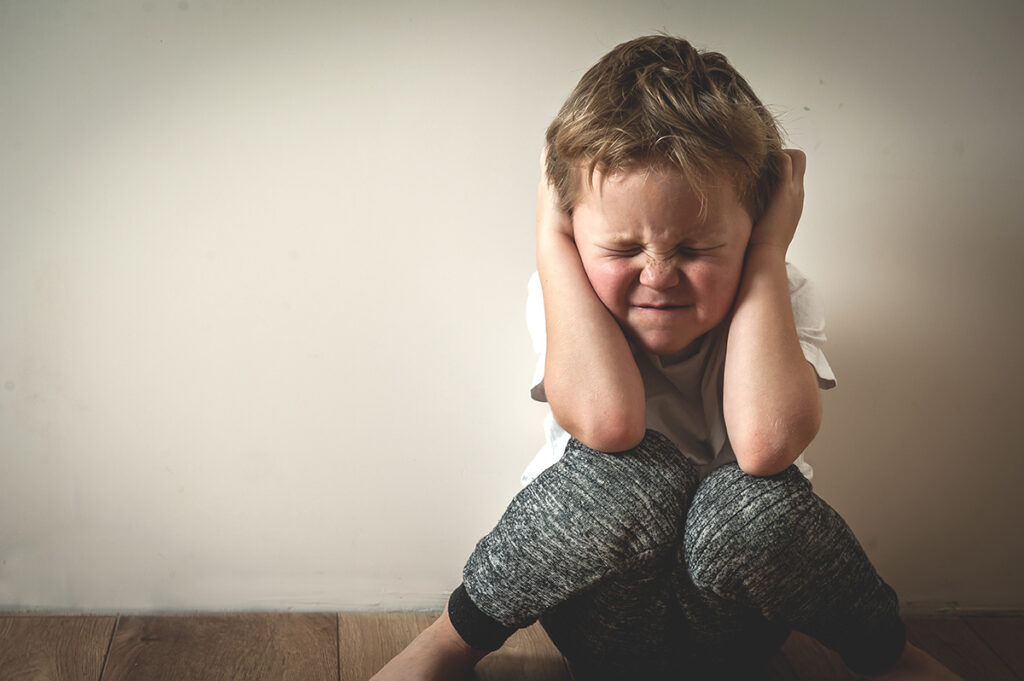Staying Mentally Well During COVID-19
Feeling a little overwhelmed lately? That makes sense – the world feels upside down these days. And it makes sense for kids to be feeling overwhelmed, too. Even without a pandemic added to our lives, kids with diabetes have an increased risk for mental health struggles including diabetes distress, burnout, and depression. Learn to self-screen for mental health issues with your children, and gain some insight on how to manage issues that might arise.
Diabetes and Mental Health
Diabetes can contribute to a lot of daily stress for the person living with diabetes and their loved ones. It’s estimated, according to a study from 2014 published in Diabetes Care, that people with diabetes make an additional 120 decisions a day in order to care for themselves, so it’s no wonder that this increases their risk for mental health challenges three times more in kids and teens, and by two to three times more in adults.
As well as the daily decision-overload, there are many common worries that people with diabetes tend to have. Fear of low blood sugars, worry about complications, social embarrassment, anxiety about diabetes devices working, and being a burden on family or loved ones are some of the more common fears.

Signs of General Mental Health Struggles
Our CWD team hosted a Screenside Chat Talking About Kids’ Mental Health with Dr. Laura Smith, PhD, CDCES, Assistant Professor of Pediatrics at Cincinnati Children’s Hospital, and clinical diabetes psychologist. Dr. Smith talked about how it can be difficult to interpret your child’s signs of mental health struggles and shared some typical signs kids may show that could mean your child may need some help.
Signs may include:
- Feeling very sad, low or overwhelmed
- Irritability or anger
- Excessive worrying
- Difficulty Concentrating
- Avoiding social activities, family or friends
- Big changes in sleeping habits or eating habits
- Multiple physical ailments without obvious causes (often frequent stomach or headaches)
“Irritability in particular is often overlooked and is a very common symptom of depression in teens and kids,” said Smith. “Parents report to me that their child’s behavior has changed … if in the past very active socially … now they’re staying in their room more and withdrawing.”
Diabetes Distress or Burnout
Diabetes distress or burnout may be an issue if your child is overwhelmed about diabetes, tired of diabetes tasks, hopeless or negative about diabetes, or not taking care of their diabetes as normal. Most people with diabetes will experience some form of diabetes distress or burnout in their lifetime.
As a caregiver of a child with diabetes, one of the best ways to help prevent or address diabetes distress or burnout is to simply offer to help your child with their diabetes care. Simply offering to help, asking if you can fill a pump cartridge, checking their blood sugar for them, changing their CGM, whatever it may be, can be immensely helpful. Talk with your child about what they might find helpful, and work as a team to identify ways that you can support them.
Steps to Help Identify and Manage Mental Health Issues in Children
Validate, validate, validate. The world in general is going through a lot right now, and helping your child validate their emotions is key to helping them develop their mental well-being. Validating someone else’s feelings is simple, but it’s often difficult for us as people. We often want to jump to provide advice or solutions long before we understand how the other person is feeling. The first step in validating is simply listening to the your child – and active listening can be a challenge. Next is to normalize their reaction such as, “It’s okay that you’re frustrated; I would feel frustrated, too. I understand.”
Identify Feelings. It can also be hard for all of us to identify our actual feelings. Often, we mask our true emotions with other emotions, such as feeling angry because we feel worried about something. For kids the first step in understanding emotions is learning to identify their feelings. There are many resources for you to teach your kids what emotions are including books, online learning (here’s one example), and games or emotion flashcards. It’s important to have discussions with your kids at their age-appropriate level, but is never too early to start talking to them about feelings.
Identify Coping Skills. Helping your kids with coping skills is as equally important as validating and identifying. We all go through the spectrum of emotions, and our children are no different. Teaching children different coping mechanisms can be challenging, depending on their age and development status, but developing and using healthy coping mechanisms can make a huge difference in dealing with stressors.
For young kids, deep breathing exercises, like blowing bubbles, can help them focus and achieve a level of calm. For teenagers, find out what helps them relax, such as taking a bath, exercising or listening to music. Coping Skills for Kids has many resources for various emotional management in kids. Mindfulness is another area to explore, and kidshealth.org has a great article on mindfulness in kids. You can also use various meditation apps such as Calm or Headspace, which both have courses on meditation for kids and adults.
For kids of all ages, adequate sleep and proper nutrition are key for balancing emotions; if those things are off-balance, you may want to wait until those basics needs are met before having the conversations on coping.
When to Ask for Professional Help


According to CopingSkillsForKids.com, there are some situations or responses you should keep watch for in children, including extreme reactions to experiences, anger or anxiety that doesn’t go away, and strong emotions that appear to hinder your child’s daily life. Seek help immediately if your child is expressing thoughts of self-harming, or of harming others, or if you are concerned for their safety. You can take your child to the emergency room at your local children’s hospital, or call 911 in an emergency.
Another concern for parents of children with diabetes is that of insulin manipulation to lose weight, also known as diabulimia. We have resources to assist with that health concern, but please be sure to connect with your healthcare team immediately if this is a concern for your child.
If you are worried about your child and feel that you would like to get advice or assistance from a mental health care provider, work with your child’s health care team to find a mental health provider. Seeking mental health resources isn’t the last resort or indicative that a situation is “bad,” but instead should be a normalized part of seeking good health and staying healthy.
Clinically reviewed by Marissa Town, RN, BSN, CDCES
Published: October 6, 2020


The Children with Diabetes editorial team is always working to keep our website updated with accurate, timely, and supportive information for families living with diabetes. Is there a content you’d like to see on CWD? Email us!
